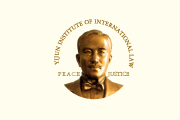CWR > Volume 7(2); 2021 > Correspondence
Research Paper
Published online: Sept 1, 2021
DOI: http://dx.doi.org/10.14330/cwr.2021.7.2.06
Indigenous People in Pakistan: In Consideration of the Right to Cultural Property and Identity
Usman Hameed & Zarfishan Qaiser & Khushbakht Qaiser & Kashif Imran Zadi & Beata Pollock
University of Management and Technology
Director’s Office, Library Building, Level-6, University of Management and Technology. C-II, Johar Town, Lahore, Pakistan
Corresponding Author: kashif.zadi@umt.edu.pk
ⓒ Copyright YIJUN Institute of International Law. This is an Open Access article distributed under the terms of the Creative Commons Attribution Non-Commercial License (http://creativecommons.org/licenses/by-nc/3.0/) which permits unrestricted non-commercial use, distribution, and reproduction in any medium, provided the original work is properly cited.
Abstract
Pakistan is host to the different indigenous peoples’ groups such as “Koochis,” “Rebari,” “Bakarwal,” “Kehal,” “Jogi,” “Kabootra,” “Sanyasi,” and the most famous “Kalash.” By providing them with a proper legal mechanism for the fortification of their inherited resources, culture expressions and outdated information under a thorough intellectual property framework, Pakistan can preserve the already declining population of indigenous people and create better livelihood opportunities for them. They form at present nondominant sectors of society and are determined to preserve, develop, and transmit to future generations their ancestral territories and ethnic identity, as the basis of their continued existence as peoples, in accordance with their own cultural patterns, social institutions and legal system. Many international instruments have been in operation to support their endeavors. They make up to 15 percent of the extreme poor population of the world. Hence there is an urgency to develop laws for them.
Keywords : Ethnic, WIPO, Intellectual Property, Rights, UNDRIP, Indigenous aspects, Traditional Knowledge, Kalash





